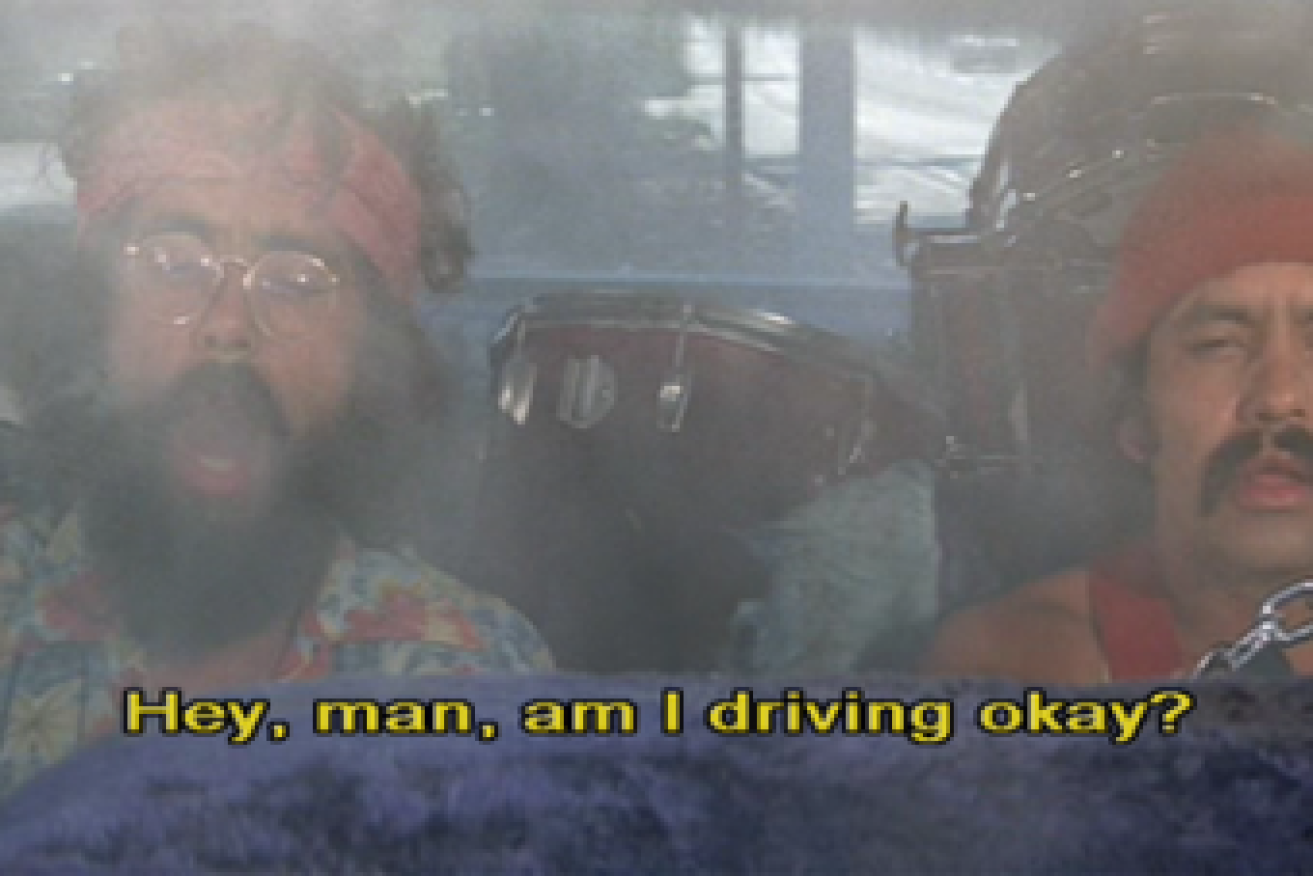New breath analyser could weed out stoned drivers


Cheech and Chong would be at risk of arrest if the new breathalyser came into common use. Photo: Supplied
No longer a pipe dream, US engineers have created a prototype breathalyser that can measure the amount of THC, the psychoactive compound in marijuana, in a motorist’s breath.
While the device is still undergoing tests – in the lab and in the field – the researchers are already spruiking it for wide-scale manufacturing and adoption by highway police.
According to a statement from the University of Pittsburgh, the breathalyser uses carbon nanotubes – tiny tubes of carbon 100,000 times smaller than a human hair – to trap THC molecules, along with other molecules in the breath.
When they bind to the surface of the nanotubes, they change their electrical properties.
Nanotechnology detects even trace amounts
The speed at which the electrical currents recover is what signals whether THC is present.
Nanotechnology sensors can detect THC at levels comparable to or better than mass spectrometry, which is considered the gold standard for THC detection.
“The semiconductor carbon nanotubes that we are using weren’t available even a few years ago,” says Sean Hwang, lead author on the paper and a doctoral candidate in chemistry.
“We used machine learning to ‘teach’ the breathalyser to recognise the presence of THC based on the electrical currents recovery time, even when there are other substances, like alcohol, present in the breath.”
In lab tests, the device was able to detect THC in a breath sample that also contained components like carbon dioxide, water, ethanol, methanol, and acetone.
Great, but can weed intoxication be measured?
In Australia, roadside drug testing – by scraping the inside cheek of motorists – is time-consuming and limited to establishing whether or not certain drugs have been ingested.
The testing goes no way to establishing if the driver is stoned.
In fact, there is no legislated measurement of cannabis intoxication – and a presumed safe limit – as there is for alcohol.

Associate professor of electrical and computer engineering Ervin Sejdic, left, and professor of chemistry Alexander Star led the development of the THC Breathalyzer. The prototype works similar to a breathalyser for alcohol, with a plastic casing, protruding mouthpiece, and digital display. Photo: University of Pittsburgh
And because cannabis affects people differently, establishing a reliable safe level could be tricky – and yet necessary, as cannabis laws become more relaxed.
Nevertheless, a reliable breathalyser – and there is scepticism that such a thing is possible yet – goes some way in establishing is someone is under the influence.
What about cookies and cake?
There is also the confounding problem of edibles. If you’re high on a hash cookie, will the presence of THC in your body be picked up in your breath? Well, probably – but not to an extent that will give a meaningful reading.
The Pittsburgh researchers are the latest in a small but ambitious field of companies – see here and here – that have developed and are clinically testing THC breathalysers in the US, each of them hoping to score potentially lucrative police department and government contracts.
Police need more reliable testing
Roadside drug testing was introduced in Australia in 2014 with ongoing controversy as to accuracy of the devices used by police.
A University of Sydney study, published September in the journal Drug Testing and Analysis, found two devices commonly used by police frequently failed to detect high concentrations of THC — registering false negative rates of 9 per cent and 16 per cent respectively.
In May, a NSW woman was cleared of drug driving when a magistrate accepted her “passive-smoking” defence – casting more doubt of the efficacy and usefulness of saliva tests.
According to the Australian Institute of Criminology, referencing Drug Use Monitoring in Australia data from 2005 and 2006, it was estimated that “approximately 24 per cent of police detainees had driven while under the influence of alcohol and 38 percent had driven while under the influence of other drugs in the past 12 months.”








